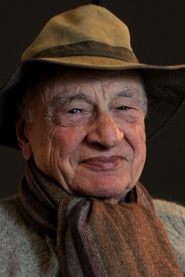
Edgar Morin
Edgar Morin (born Edgar Nahoum; 8 July 1921) is a French philosopher and sociologist of the theory of information who has been recognized for his work on complexity and "complex thought" (pensée complexe), and for his scholarly contributions to such diverse fields as media studies, politics, sociology, visual anthropology, ecology, education, and systems biology. As he explains: He holds two bachelors: one in history and geography and one in law. He never did a Ph.D. Though less well known in the anglophone world due to the limited availability of English translations of his over 60 books, Morin is renowned in the French-speaking world, Europe, and Latin America. During his academic career he was primarily associated with the École des hautes études en sciences sociales (EHESS) in Paris. At the beginning of the 20th century, Morin's family migrated from the Ottoman city of Salonica (Thessaloniki) to Marseille and later to Paris, where Edgar was born. He is of Judeo-Spanish (Sefardi) origin. When the Germans invaded France in 1940, Morin assisted refugees and joined the French Resistance. As a member of the French Resistance he adopted the pseudonym Morin, which he continues to use. He joined the French Communist Party in 1941. In 1945, Morin married Violette Chapellaubeau and they lived in Landau, where he served as a lieutenant in the French Occupation army in Germany. In 1946, he returned to Paris and gave up his military career to pursue his activities with the Communist Party. Due to his critical posture, his relationship with the party gradually deteriorated until he was expelled in 1951 after he published an article in L'Observateur politique, économique et littéraire. In the same year, he was admitted to the National Center of Scientific Research (CNRS). Morin founded and directed the magazine Arguments (1954–1962). In 1959 his book Autocritique was published. The book was a sustained reflection on his adherence to, and subsequent exit from, the Communist Party, focusing on the dangers of ideology and self-deception. In 1960, Morin travelled extensively in Latin America, visiting Brazil, Chile, Bolivia, Peru and Mexico. He returned to France, where he published L'Esprit du Temps, a work on popular culture. That same year, French sociologist Georges Friedmann brought him and Roland Barthes together to create a Centre for the Study of Mass Communication that, after several name changes, became the Edgar Morin Centre of the EHESS, Paris. Also in 1960 Morin and Jean Rouch coauthored the film Chronique d'un été, an early example of cinéma vérité and direct cinema. Beginning in 1965, Morin became involved in a large multidisciplinary project, financed by the Délégation Générale à la Recherche Scientifique et Technologique in Plozévet.
| Known For | Writing |
|---|---|
| Most Rating | 1.603 |
| Birthday | 1921-07-08 |
| Place of Birth | Paris, France |
| Also Known As | 에드가 모랭, 에드가 모린, 에드거 모랭, Edgar Nahoum, |

2019

Edgar Morin, un penseur à Paris
4.5/2
Watch Now
Edgar Morin, un penseur à Paris

2009

Here to Stay
5.6/4
Urban sprawl, extinct species, depletion of natural resources and global warming are all causes of deep anxiety. Here to stay takes an uncompromising...
Watch Now
Here to Stay

1991

Against Oblivion
6.5/2
Contre l'Oubli (Against Oblivion) is a compilation of 30 French filmmakers, Alain Resnais and Jean Luc Godard among them, who use film to make a plea...
Watch Now
Against Oblivion

2011

Mario Ruspoli, Prince of the Whales
0/0
Colleagues, friends and specialists pay tribute to the filmmaker Mario Ruspoli in a portrait that mixes encounters, archive images and film excerpts....
Watch Now
Mario Ruspoli, Prince of the Whales
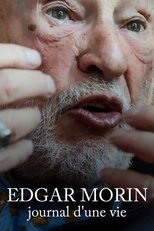
2021

Edgar Morin, journal d'une vie
0/0
A philosopher of complexity, Edgar Morin has renewed the figure of the intellectual. Born Edgar Nahoum in Paris in 1921, he joined the Communist Resis...
Watch Now
Edgar Morin, journal d'une vie

2024

Kim Kardashian Theory
4.8/3
Watch Now
Kim Kardashian Theory

2016

Jean-Marie Serreau, découvreur de théâtres
10/1
Watch Now
Jean-Marie Serreau, découvreur de théâtres

2015

Edgar Morin, chronique d'un regard
6.5/2
Watch Now
Edgar Morin, chronique d'un regard
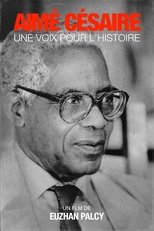
1995

Aimé Césaire, Une voix pour l'histoire
10/1
A three-part study that introduces audiences to the celebrated Martinican author Aimé Césaire, who coined the term "négritude" and launched the moveme...
Watch Now
Aimé Césaire, Une voix pour l'histoire

2014

Football And Immigration, 100 Years Of Common History
10/1
Football is both the place, the crystallization of sporting passion and the witness of identity imaginations. It is also an interesting and relevant a...
Watch Now
Football And Immigration, 100 Years Of Common History
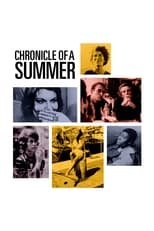
1961

Chronicle of a Summer
7.2/100
Paris, summer 1960. Anthropologist and filmmaker Jean Rouch and sociologist and film critic Edgar Morin wander through the crowded streets asking pass...
Watch Now
Chronicle of a Summer

2011

Un été + 50
7/1
A seventy-five-minute documentary featuring outtakes from "Chronicle of a Summer" (1961), along with new interviews with co-director Edgar Morin and s...
Watch Now
Un été + 50
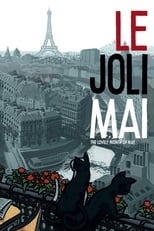
1963

The Lovely Month of May
8/40
Candid interviews of ordinary people on the meaning of happiness, an often amorphous and inarticulable notion that evokes more basic and fundamentally...
Watch Now
